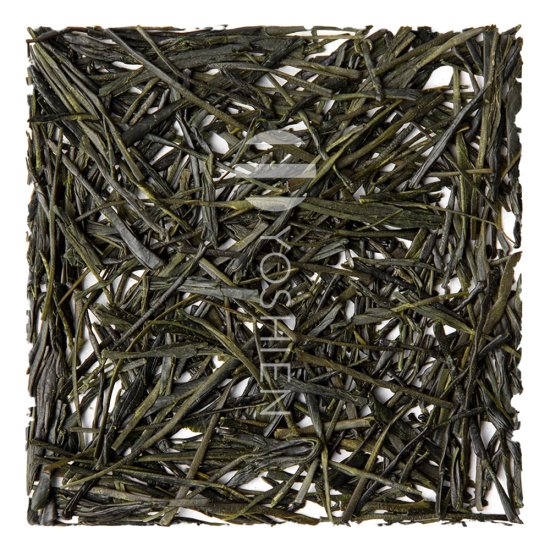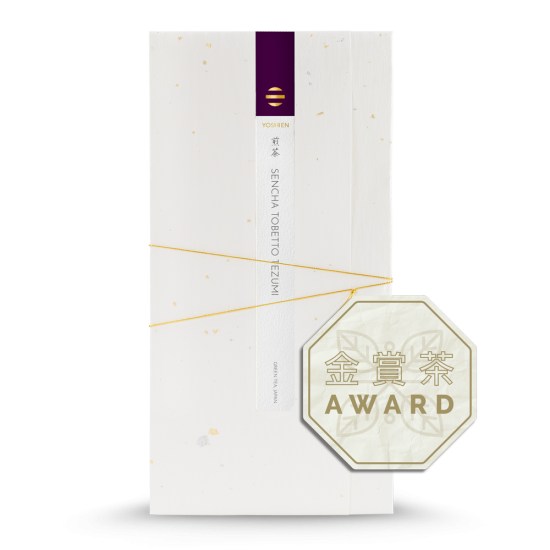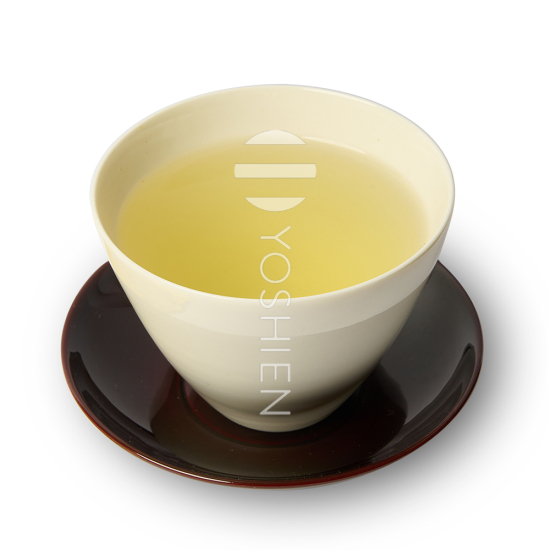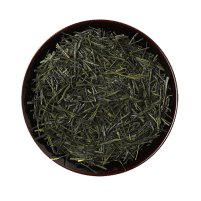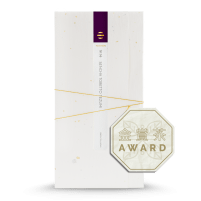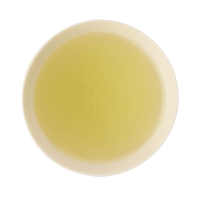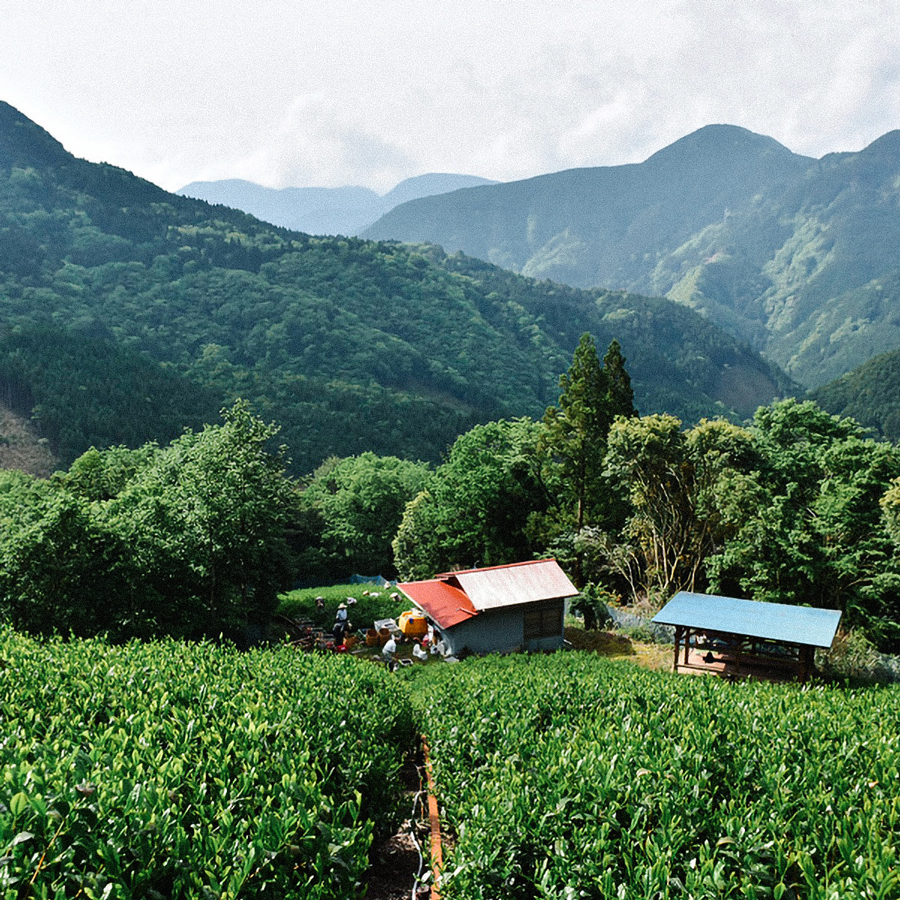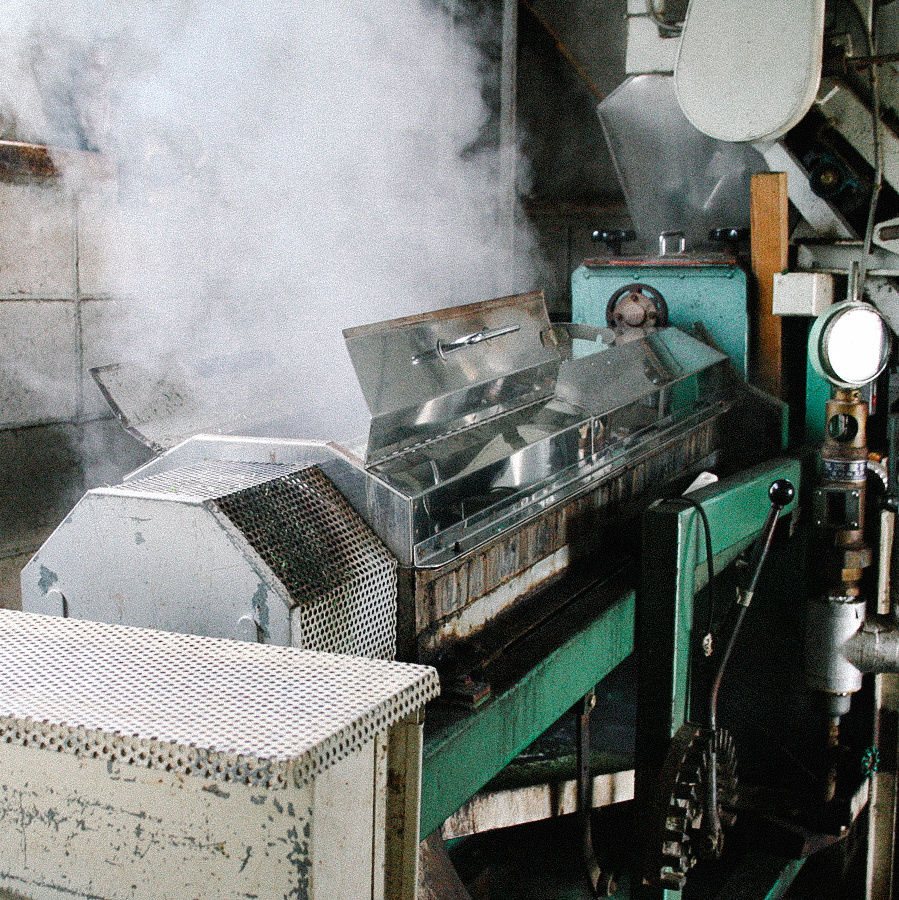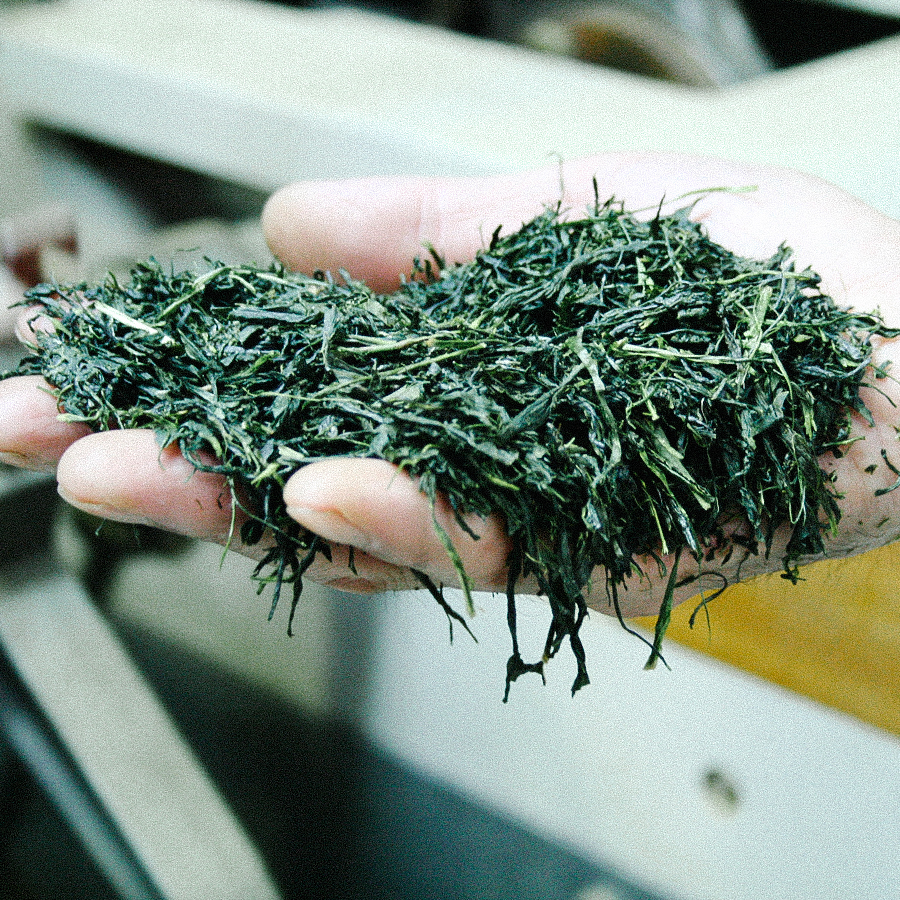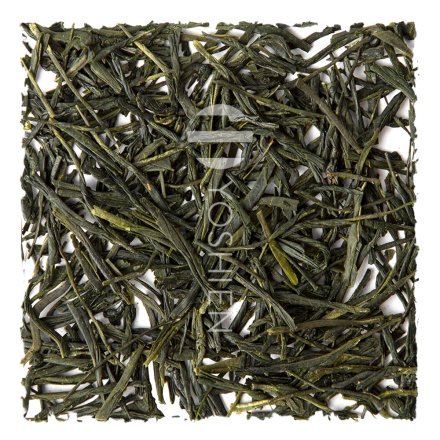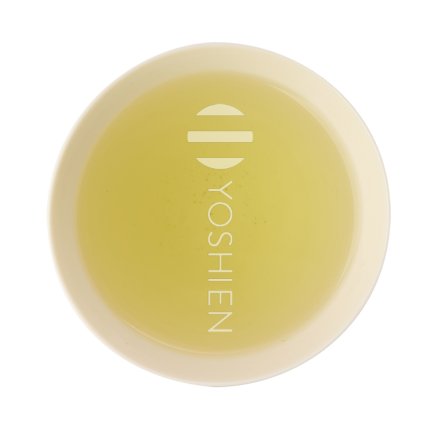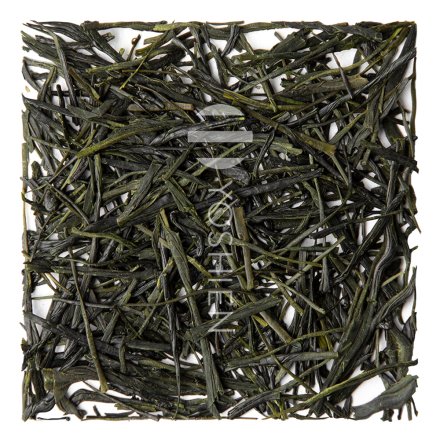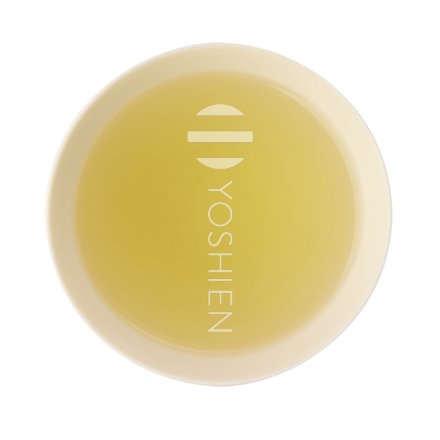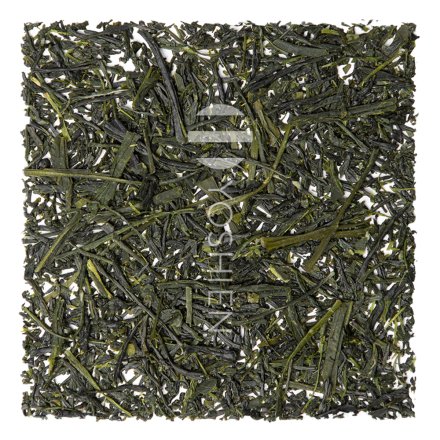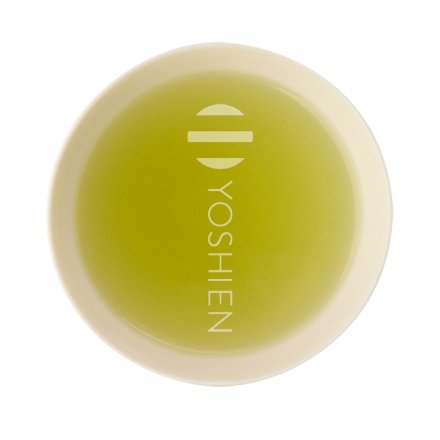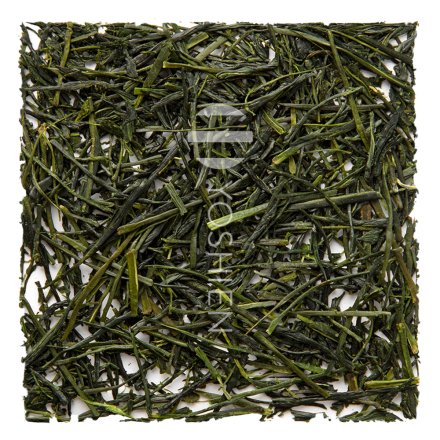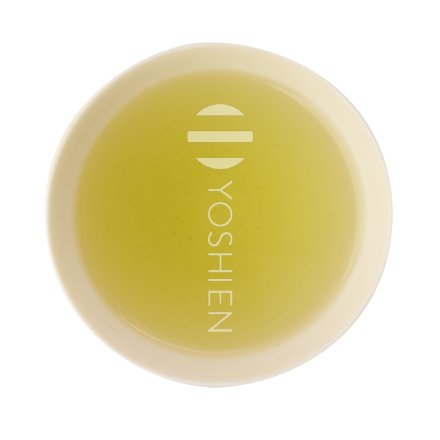The tea field for this Sencha Tobetto is, at 800m elevation, one of the highest in all of Japan. Surrounded by lush forest, the tea field reaches up the southeast-facing slope of the high mountains of the Upper Abekawa River. From atop the field, a picturesque panorama stretches out from the thick mountain forests and across the deep valleys of Honyama.
Typically tea plants cannot flourish at such heights, but Master Tsukiji specifically chose this location for its extreme bracing climate and natural landscape to cultivate what has become one of the best sencha in Japan. Grown with great expertise and care, the yabukita and omune cultivars grown at this tea field develop an unparalleled richness in flavour.
The tea field is only reachable by foot along a narrow mountain path. Necessary equipment is carried up the slope via a so-called monkey train. Only in late May is the tea selectively picked by the experienced hands of women who together make their trek up the mountainside to the field. The diligent work of these women carries on the tradition of tezumi (手摘み, "hand-picked"), which results in a higher grade of tea.
Single Origin
This tea is exclusively sourced from the above mentioned tea farm in Tobetto. Sourced directly from the tea farmer.





